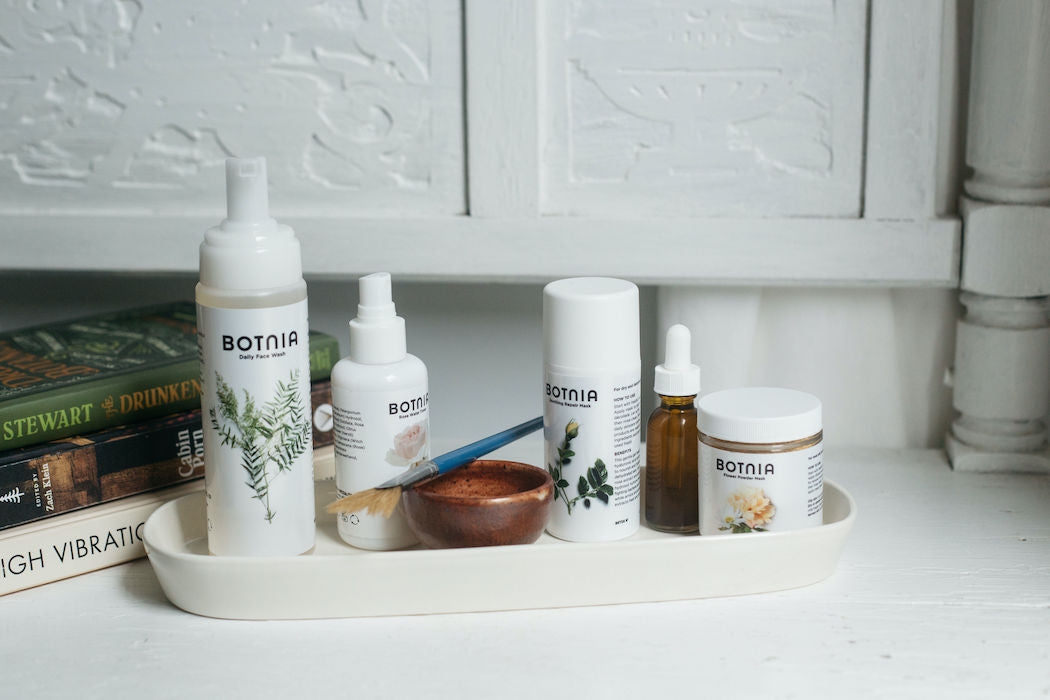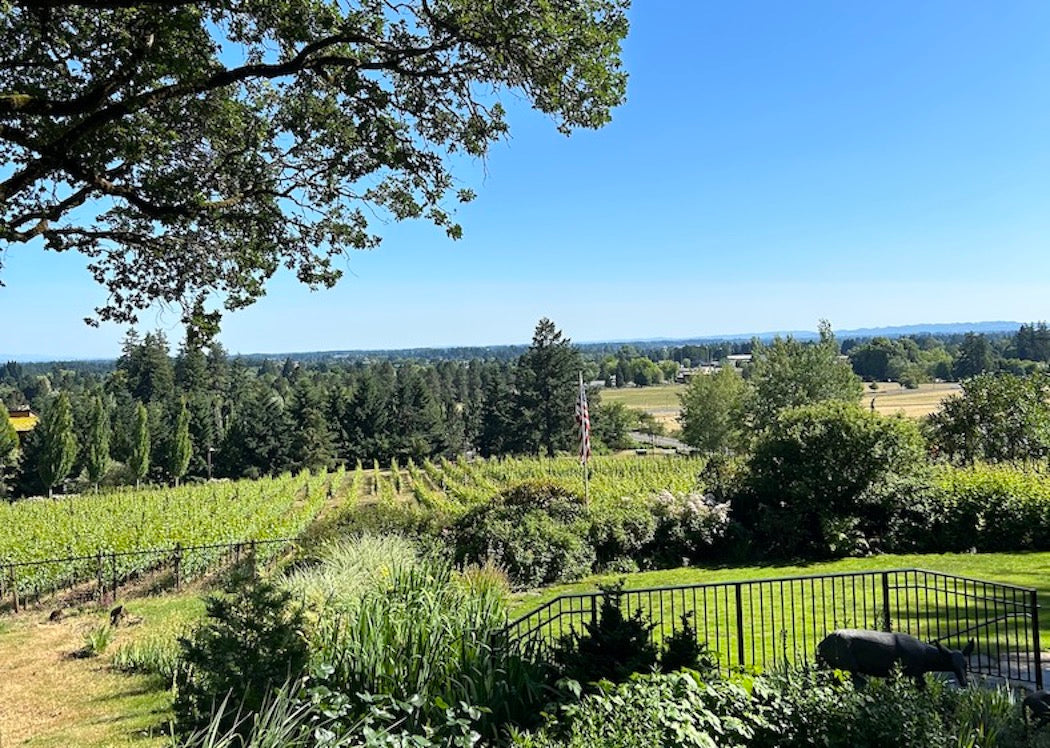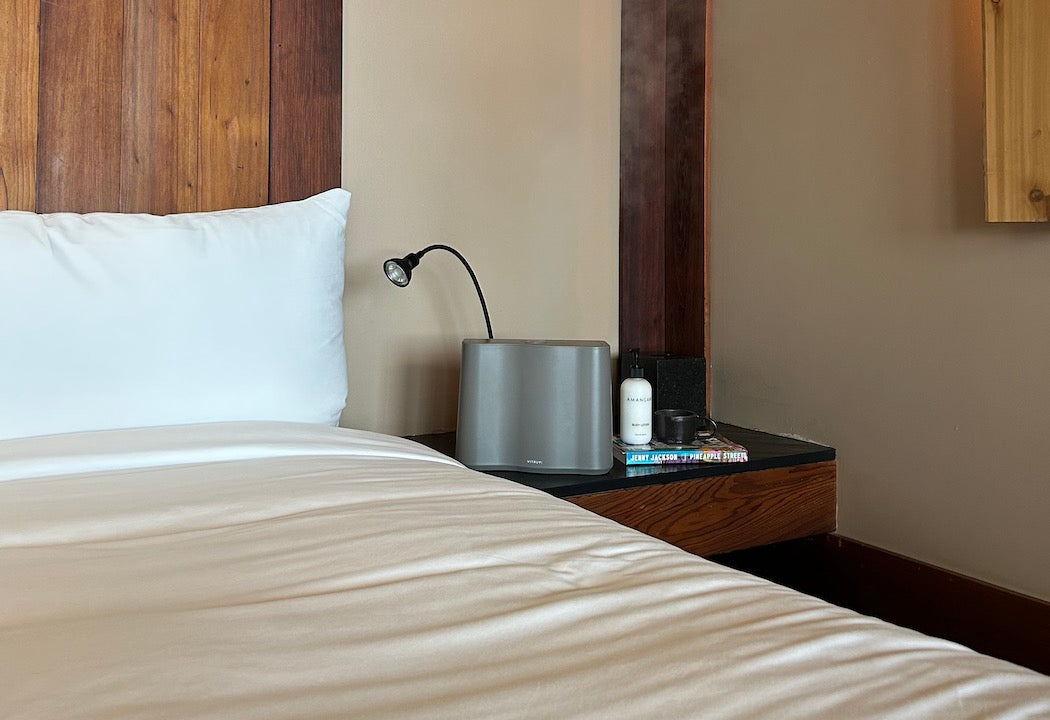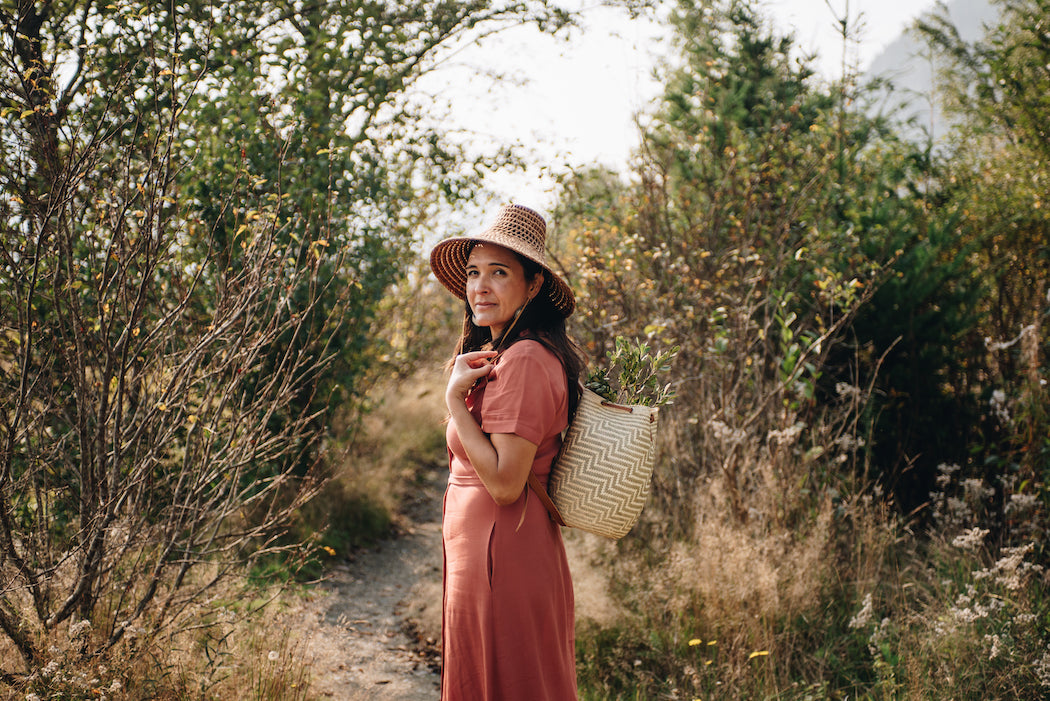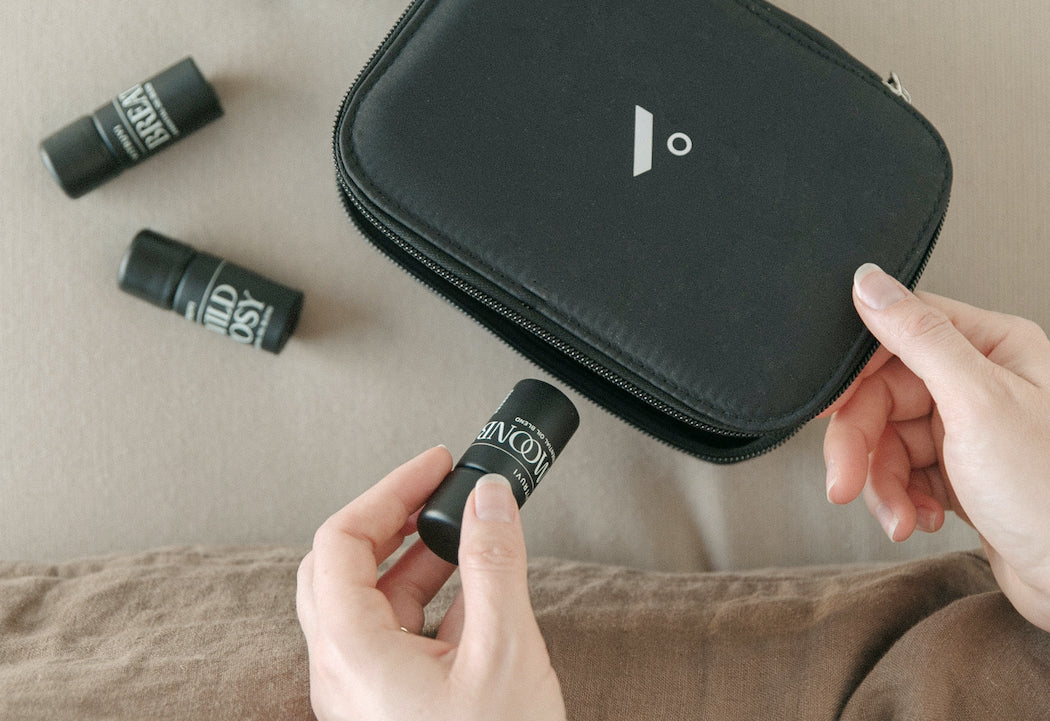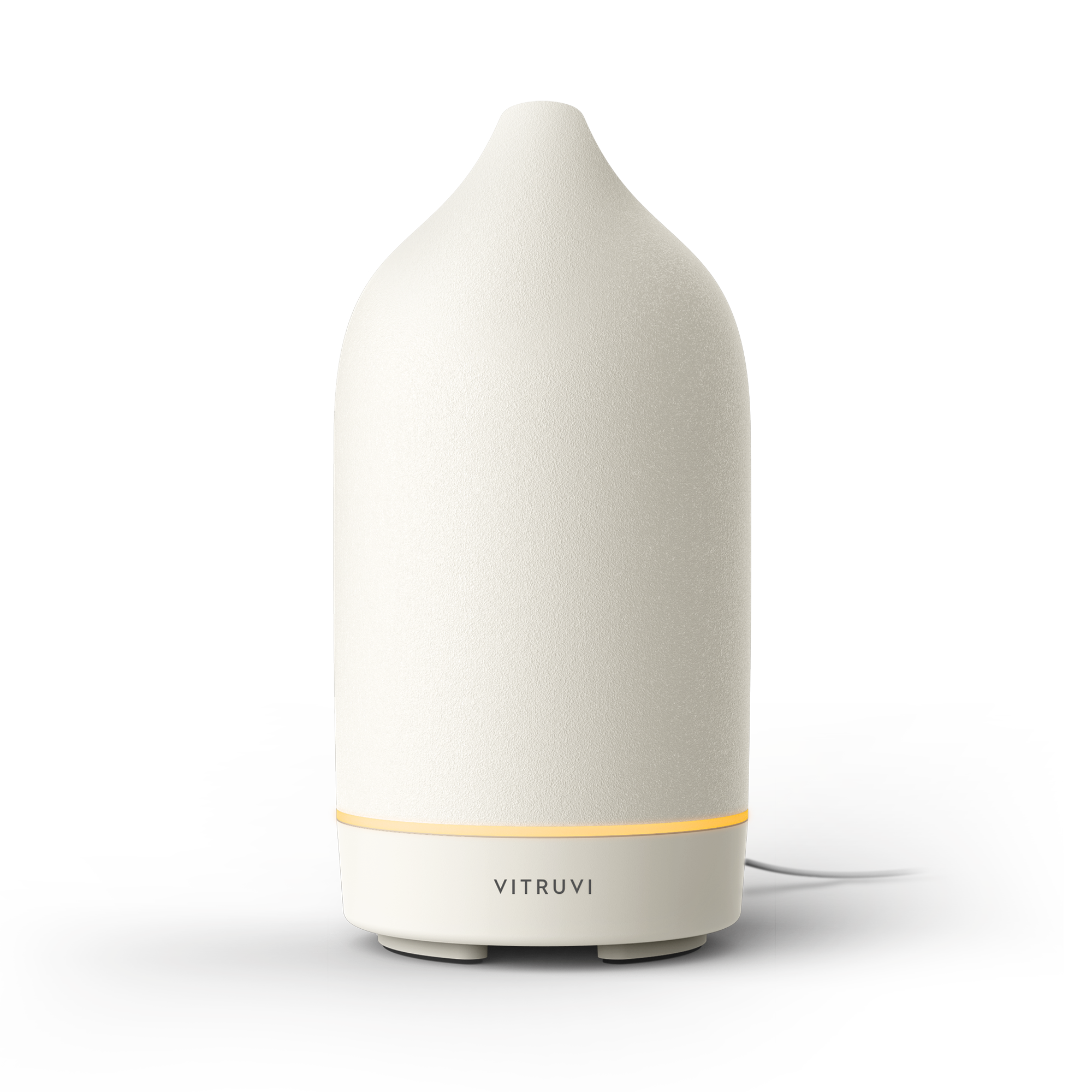Terroir is a French term most often associated with wine, but is also used to describe differences in single-origin agriculture like chocolate and coffee. It encompasses the environmental factors—soil, climate, and growth habitat—that affect a crop, resulting in cabernet sauvignon or cacao that tastes distinctly different depending on where it was grown. And the same concept can be applied to natural, plant-based skincare.
“If you can notice terroir in your food and drink then it’s definitely in your artisan skincare as well,” says Erica Ragusa, founder of Ambika Herbals. Ragusa studied environmental science and chemistry in college, and grows native Colorado plants like yarrow in raised-bed gardens right next to her Breckenridge studio—where she blends all of her products by hand. “By sourcing local herbs and flowers, I am creating products that intuitively serve the people living in this environment with highly moisturizing and antioxidant-rich ingredients,” she continues. Plants that can handle harsh winds, intense UV radiation, and sharp temperature drops have potent phytonutrients that can help protect human skin from these same elements.
“My garden is an experiment in plants that can thrive in a high-altitude environment,” Ragusa explains. She grows crops like the California poppy, which is found in dry, mountainous Western states, along with Mediterranean plants like thyme, lavender, and hyssop (blended into a facial steam for their aromatic and antimicrobial properties) that can also thrive in Breckenridge. “I have drying racks within my apothecary where I let the plants slowly air dry,” Ragusa explains. “It’s a time-consuming process that allows the phytonutrients and volatile oils to remain intact.” Ragusa also harvests other plants including mallow leaf, comfrey, and borage from regional farms. “These are best utilized fresh and will go right into an oil infusion in my apothecary to extract their mucilaginous constituents,” she says, “which would be lost if they were dried.”
Growing up on a vineyard in Napa Valley, the concept of terroir runs in April Gargiulo’s veins. “It’s a science-backed, but also a bit metaphysical, idea that where you grow something matters as much as what you grow,” she explains. “Terroir encompasses the weather, climate, and geography, but also the learning that happens when something has grown in a place for generation after generation.” At Vintner’s Daughter, Gargiulo only makes two products—a water-based essence and an oil-based serum—each comprised of the finest specimens of botanical ingredients from around the world. There’s rose from Bulgaria, tamanu from Madagascar, and bergamot from Italy; many of her other ingredients, including lavender, lemon, and rosemary, are also sourced locally and infused as whole plants.

“The way that we make product is very different,” Gargiulo says. “We formulate over the course of weeks versus hours.” Her Active Treatment Essence even undergoes a natural fermentation, resulting in an earthy, tangy scent. Like wine, this skincare is still alive in the bottle.
Justine Kahn of Botnia is another firm believer that the quality of the skincare is determined by the quality of the botanical. “From seed to serum, we make sure that all botanicals are grown without the use of pesticides; that the soil they’re grown in has only seen natural amendments; that we’re using organic, medicinal strains of seeds; and that we have the best quality imaginable,” she says. “The plants do all the work to set our skincare apart.” On her microfarm in Sausalito, Kahn is growing California-native plants including yerba buena, arnica, St. John’s wort, white sage, and yarrow, along with popular nonnative species such as calendula, lavender, rose, lemon verbena, and chamomile.
She meets many of her farm partners at the local market, working with organic growers who adhere to the most sustainable and biodynamic agricultural practices. “This culminates to make the nutritional value of our plants that much better, that much healthier, and that much more effective in our skincare,” she says. With raw plants, Kahn often makes hydrosols, extracting all the water-soluble chemical constituents in the plant with a copper still for skin tonics or as part of the water phase in a skincare regimen. “The other way we incorporate our plants,” she explains, “is to dry them to either be ground into masks or to be infused with oil and glycerine to make botanical extracts.”
Sustainability is a guiding principle for all of these clean, plant-based brands, with an ethos of respect and gratitude for Mother Nature. “I believe in reciprocity and that being stewards for the environment returns us with gifts,” Ragusa says. “For me, it’s in the form of medicinal plants.” At its essence, a product’s terroir is its sense of place—open a bottle of Vintner’s Daughter and be transported to Northern California; apply a layer of Ambika Herbals and find yourself in mountainous Colorado. It’s feeding your skin and your soul at the same time.

